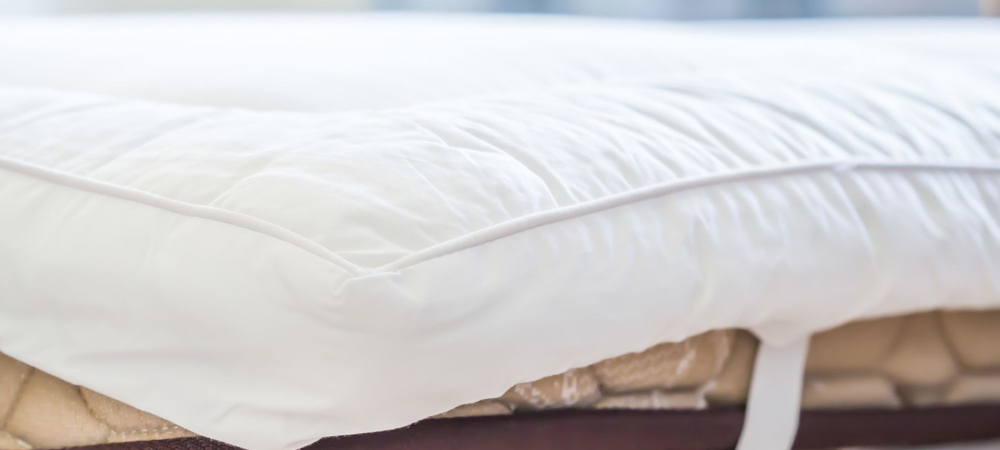
All about mattress topper : Mattress topper types
There are four main types of mattress topper: memory foam, feather and down, microfibre and latex. We've broken down the pros and cons of each type to help you find the best.
1. Memory foam mattress toppers :
Memory foam is polyurethane with chemically enhanced density. These very popular mattress toppers come in a wide range of thicknesses and densities and provide excellent cushioning and support.

-
Soft and comfortable
-
Reduces pressure on arthritic or sore joints
-
Adds considerable comfort to an aging, hard, or unsupportive mattress
-
Reduces motion from a tossing, turning bed partner
-
Can be hot ( not suitable for Vietnam weather )
-
Can make it difficult to turn over or shift in bed
-
Expensive
-
Odor, especially when the topper is new
2. Feather and down mattress toppers :
Feather and down mattress toppers have a more traditional feel and you can find cheap down mattress toppers for as little as £50. Premium feather and down, including Hungarian goose down, can be very expensive, though. These natural options can flatten down quickly and will need regular fluffing to retain their shape. You might find that they have a musky smell at first, too.

-
Very soft
-
Less expensive than memory foam or latex
-
Doesn’t retain heat
-
Doesn’t hinder turning over or moving in bed
-
Feather shafts can poke through the fabric
-
Can be noisy and crinkly
-
Feathers tend to compress over time, requiring periodic shaking
-
Create allergies for some people
3. Microfibre and hollowfibre mattress toppers ( Our mattress topper )
Microfibre is a synthetic material, often used in pillows and duvets, and is the most affordable of all mattress topper types. It's a great basic option if you need a mattress topper on a budget. It's not as breathable as down, and will flatten quicker, but this can be fixed by regularly shaking it to fluff it back up.
Its synthetic fibres make it hypoallergenic, too. Some are sold as ‘anti-allergy’ - these ones are treated with a chemical to ward off common allergens such as dust mites and pollen.
Pros:
- Not too expensive option.
- No odour
- Provides good softness for the mattress
- Good for anti-allergy
- Easy to wash and maintain
- Suitable for Vietnam hot weather
-
Can become lumpy over time
-
Can become flattened over time
-
Can become lumpy over time
-
Tend to compress with use
4. Latex mattress toppers :
Natural latex is made from a liquid found in the rubber tree. There are many synthetic latex toppers on the market as well, so if green living is important to you, make sure your latex topper is labeled natural. This option provides a lot of support, but may not be ideal for those who prefer a softer bed. Of course, you'll want to avoid latex if anyone in your household is allergic.

-
Antimicrobial and non-allergenic, unless you have a latex allergy
-
Firm but bouncy, usually firmer than memory foam
-
Good support for arthritic or painful joints
-
Natural latex is very durable
-
Doesn’t transmit motion; if your partner tosses and turns during the night, you won’t be disturbed
-
Natural latex is expensive
-
Rubber smell, at least initially
-
Can be hot
-
Some people find latex to be too firm
-
Can have a "bouncy" feel that some people don't like
-
An allergen for some people
#cottonsheets #tencelsheets #tencelbedding #bedding #minhha #highqualitybedding #linenstore #luxurybedlinens #mattresstopper #premiummattresstopper

